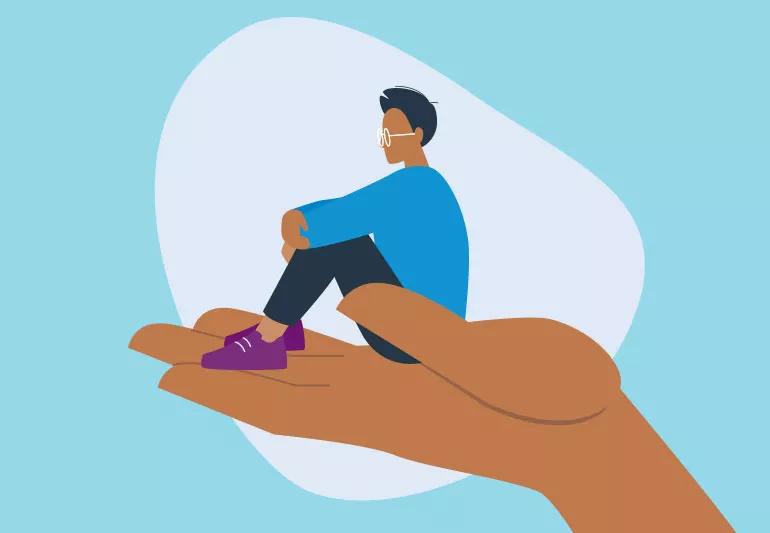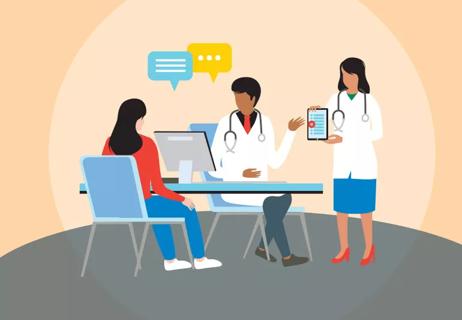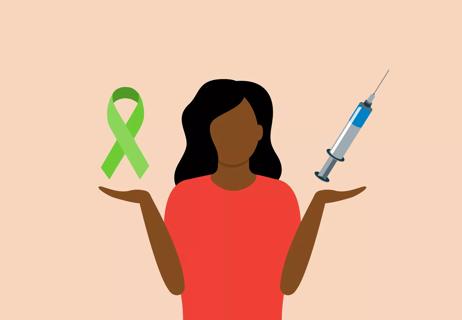It’s important to take time for yourself as you go through your cancer journey

The time immediately after a major diagnosis can be chaotic, physically and emotionally. There are doctors’ appointments to schedule, family and work logistics to settle, and treatments to consider.
Advertisement
Cleveland Clinic is a non-profit academic medical center. Advertising on our site helps support our mission. We do not endorse non-Cleveland Clinic products or services. Policy
It’s also a stressful and anxious time as you ponder the road ahead and worry about the outcomes. And with so much focus on other things, it can be easy to lose track of taking time for self-care.
Self-care, especially when diagnosed with lymphoma, is a key part of processing your diagnosis and managing stress levels throughout your treatment.
Lymphoma is classified by two different groups:
To get a better understanding of why self-care is so important for people being treated for lymphoma and how they can best practice it, we spoke to oncology social worker Ilana Spaulding, MSW, LISW.
Once you receive the diagnosis, you’re likely to go through a range of emotions, including shock. The 24 to 48 hours after will also likely be an emotionally turbulent time, and self-care is important to help you get through this.
It’s OK not to be OK. Remember that mantra and don’t try to bury or ignore all the different feelings (sadness, anger, fear, etc.) that you’re having.
Advertisement
Allow yourself the time and space to think through and talk about your feelings. And if you want to have a good cry, by all means, cry.
“Just by recognizing and naming our emotions, we can lessen the intensity of the difficult feeling,” encourages Spaulding. “This is often referred to as ‘name it to tame it.’ Once we’re aware of how we feel, we can also decipher how to best cope moving forward.”
The day or two immediately following the diagnosis can be particularly hard on a person, so it’s important to have a close family member or friend to lean on for immediate support.
“Choose someone who you trust, who you’re comfortable to be vulnerable with and allow yourself to feel everything you’re feeling, which can run the gamut,” advises Spaulding.
As you move forward after those first post-diagnosis days, it’s time to turn your attention to making a plan for care and support during your treatment. And self-care should be part of it. Spaulding suggests a few ways to help manage your stress.
You may already be a music lover, but research shows that listening to tunes can help ease pain, fatigue and anxiety and lower your heart rate, respiratory rate and blood pressure.
So, whether you’re streaming Lizzo or spinning Rolling Stone records, the effects of music can be beneficial for your self-care during your lymphoma treatment.
“We know that playing or listening to music can improve your mood, lessen anxiety and even help to decrease pain perception,” reinforces Spaulding. “Make a playlist for your treatment day with tunes you enjoy and ask to meet with your cancer center’s music therapist.”
Whether you take a hike through the woods or just a stroll around the block, getting outdoors and soaking up the fresh air and sunlight can be beneficial.
And even if you’re just enjoying a cup of coffee or tea out in your backyard or pulling weeds from your garden, you can reap the rewards.
“Being outdoors can be incredibly calming. Try taking a ‘nature bath.’ Nature baths come from a Japanese concept called ‘shinrin-yoku,’ which means forest bathing or relaxing in a forest atmosphere,” says Spaulding. “Take note of the smells of the fresh forest air, the sound of the wind and the colors of the trees. Focusing in on these sights and sounds will allow you to be present and grounded in the moment. Nature is a soothing setting that can boost your mood and overall sense of well-being.”
Practicing yoga or meditation can bring you calm and joy. These activities can aid both your emotional and physical health, a vital combo. If you’ve never tried these activities before but think you could benefit from them during this time, it may be worth it.
Advertisement
“If an activity is safe and accessible and you’re interested, try it out,” suggests Spaulding.
Everyone handles a cancer diagnosis differently, but however you react, you need to continue focusing on your basic needs like:
“It sounds simple,” says Spaulding, “but when you’re able to take of your basic needs, it’s going to help your overall emotional and physical well-being while you’re in such a state of shock and vulnerability.”
As you absorb and process your diagnosis, you may feel more comfortable reaching out to more people you trust, like additional family members and close friends, to broaden your support network.
“If you’re comfortable, sharing about your new diagnosis with your extended support system can be a reminder that you are cared for by many during this challenging time,” says Spaulding.
That network can provide lymphoma support by helping you with your care plan, arranging rides to appointments, meal deliveries or just sending you cards to brighten your day.
You may also want to look into various lymphoma support groups — some meet in person while others are online. It can be helpful to talk to others who are going through the same journey as you.
Advertisement
“Knowing you have that network can help you feel encouraged as you’re getting started on your treatment journey,” Spaulding adds.
Studies show that people who journal or write down their thoughts and feelings tend to have lower stress and anxiety — and journaling can help you sleep better.
Don’t worry about what you write — you don’t have to share your journal with anyone if you don’t feel comfortable. Journaling is more of an outlet to help you process whatever you’re going through.
Writing promotes emotional healing and can be very cathartic for many people who have cancer. Writing can be done in several ways: in a private journal, on an online blog or through social media posts.
“Keeping a gratitude journal has also been shown to be highly beneficial for patients navigating a cancer diagnosis,” says Spaulding. “Practicing daily gratitude increases levels of well-being and happiness. It can also be helpful to look back at on more difficult days.”
Whether you’re already in therapy or aren’t currently seeing a therapist, Spaulding shares that counseling can be a helpful resource on your cancer journey.
“Working with a mental health provider can help you to develop and refine coping skills to best manage emotions and challenges that may arise throughout your treatment experience,” she says. “It can help you process and healthily move through those emotions, whether that be an adjustment to diagnosis, anxiety or feelings of depression.”
Advertisement
Spaulding also recommends looking into wellness services where you’re receiving treatment. Many healthcare systems provide complementary self-care services for patients, including massages, facials, Reiki and reflexology.
“Engaging in these services allows you to feel like you’re proactively taking care of your body,” she notes.
And, finally, relying on your care team and your social worker that your healthcare provider offers is one more good measure.
“Oncology social workers are available to help you navigate these difficult, challenging times. Treatment for lymphoma isn’t just a physical experience, but also an emotional and psychological one,” Spaulding recognizes. “These resources are an important piece of your treatment experience.”
Learn more about our editorial process.
Advertisement

A support system you trust and a care team you’re comfortable with can help you adjust

Certain foods like whole grains, eggs and nuts can boost your well-being during treatment

Vaccination is a good idea before or after treatment

Listen to them, field questions from family and friends, and provide some normalcy

Exploring your hidden side can lead to better understanding of what makes you tick

Mindful eating, physical activity and quality sleep are just a few ways to protect your kidney function

Building a support system, adapting activities you love and following a healthy diet can all help manage symptoms and changes

This trendy practice may boost your physical and mental health — but done incorrectly, it could make things worse

Wearing a scarf, adjusting your outdoor activities and following your asthma treatment plan can help limit breathing problems

Your diet in the weeks, days and hours ahead of your race can power you to the finish line

When someone guilt trips you, they’re using emotionally manipulative behavior to try to get you to act a certain way